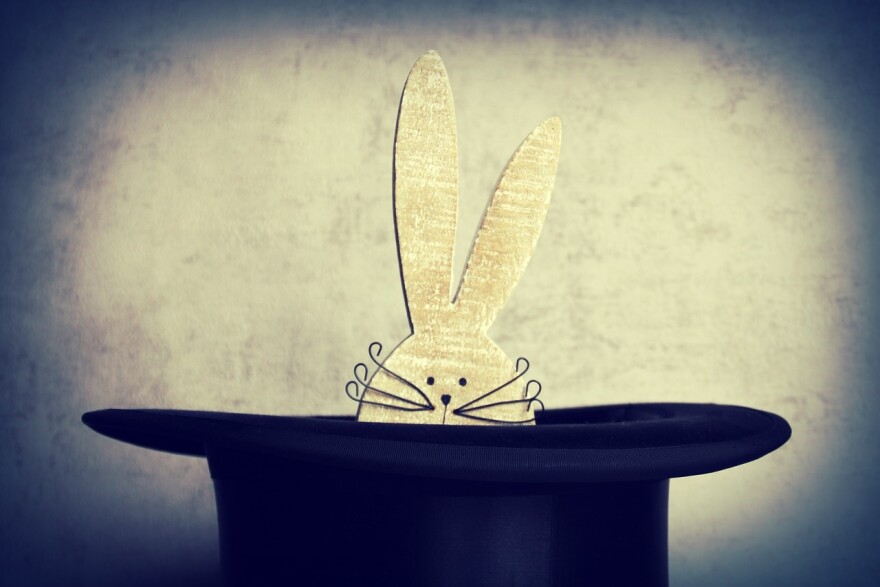The golden age of stage magic coincided more or less with my childhood, which was lucky for me. Not only could we see real magicians performing almost incredible tricks on stage at the local music hall theater, but we could also become magicians ourselves. I started out with a junior magician’s kit and a book of instructions. This was simple stuff like the self-tying handkerchief and the coin through the elbow, and I soon escalated to mind reading and card tricks.
All kids love magic. We didn’t call it conjuring, we called it magic, and we didn’t like the word “tricks” either. “Illusions” was more dignified. But as an illusionist I was a failure — too clumsy, and too transparent. I never got the hang of the disappearing egg trick, which could be messy. In my own defense I must point out that eggs were rationed back then, and my father refused to let me put his valuable rabbits into my trick hat. My ambition was to master big stage effects like sawing a lady in half, but I never found a girl who was willing to let me practice on her, so I never got beyond the small stuff. In the end I gave up magic, and never looked back.
But magic and the desire for it never goes away, and Halloween brings magical thinking out of the closet. Primitive superstitions are on the loose in the darkening days of October. Witches are abroad — and no doubt in this age of sexual equality warlocks too — doing their best to defy the laws of nature. More and more people seem to wish that the laws of nature did not exist, or any laws for that matter, because laws mean that they cannot do exactly as they like. Unfortunately, the laws of nature are terribly rigid, and relentlessly enforced. Gravity, for example, is really hard to ignore. Only witches can rise above it without an airline ticket. Unfriendly viruses are hard to ignore, as we have discovered. Unless you are a ghost or a zombie, death is hard to ignore unless, as at Halloween, we make a joke out of it. Magic escapes all that. It promises a short cut through all the fears and disappointments of life, straight to our hearts desire.
In a world where science and logic claim to explain everything, I suspect that magic stays in our minds as a primitive, hopeful faith — maybe it will work this time. The entire advertising industry is built on it. Think of those commonplace cars soaring through gorgeous empty landscapes with no other traffic in sight — that’s certainly magic. Astrology, fortune telling, conspiracies, and instant cures for all diseases are as popular now as they were a thousand years ago in the Dark Ages, perhaps more popular, and we want to believe them just as we want to believe in so many other illusions. Like the stage magician’s clever deceptions, they dazzle the eyes and confuse the brain. But, as I learned from my junior magician’s kit, none of it is really real. The invisible egg breaks, the magic bunny hops away and, no matter how elegantly we wave the magic wand, an illusion is just an illusion, and a trick is always just a trick.
Copyright: David Bouchier



